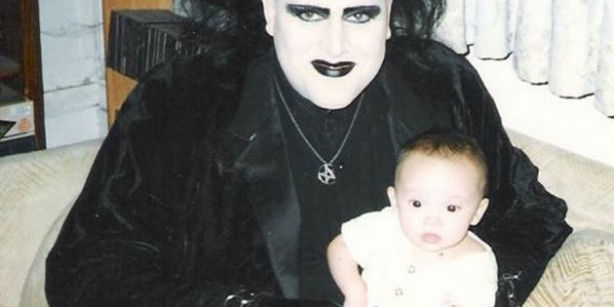 Music
Music
Study shows that goths grow up to be better adults than punks and ravers
by Mark Teo
December 19, 2014
If we’re being honest with ourselves, most high-school social archetypes don’t age well. The athletic, jocky types? 10 years on, after you’ve moved to the closest urban centre, they’re still stuck in Bracebridge, ON, working at a mobile-phone kiosk and living in their mom’s basement. The punks? They’ve either become loft-dwelling graphic designers, social media marketers for Pabst Blue Ribbon, or have become small-town badmen with Bradley Nowell tattoos. The nerds? They either run the world or moderate a banging Subreddit. Which leads us the next question: Can goths actually grow up?
The answer, in short: Yes. In fact, according to a Surrey University researcher, goths actually aged better than punks or—in their word—ravers. So, what happens to goths when they actually become adults?
Well, they actually become adults—without having to drop goth culture. Dr. Paul Hodkinson, according to The Guardian, has been following a group of goths he began studying in the 1990s. Unlike other subsets, who drifted away from their subcultures to become functioning adults, his group of goths stuck with the culture—even as career, property-owning, and family beckoned.
“They were teenagers and in their early 20s then, and I thought it would be interesting to go back because a number of people do stay involved in the goth scene,” the researcher told The Guardian.
So, why do goths stick with the subculture? It’s because, unlike aesthetics-obsessed cultures (see: Anti Flag’s “Summer Squatter Go Home”), goths sculpt a social identity around the subculture. As Hodkinson puts it, beyond wearing black and an affinity for Bauhaus and Wax Trax records, “some goths would tell you they have an interest in the dark side of life, and a natural tendency towards a degree of angst.”
Being involved in a gothic scene, he says, is integral to a goth, so much that it’s “so intertwined that it would feel very odd to leave it.” Plus, makeup hides those crow’s feet, right?
An “interest in the dark side of life,” then, doesn’t prohibit you from being an adult. A raver’s crippling MDMA hangovers and a punk’s affinity to shoot heroin in his eyeball, we’d guess, don’t translate as well in the working world. His study found that grown-up goths were also adaptable to the adult world’s custy-ass conventions: They were willing to adapt their style for work, and while residual gothiness peeked through in their business-casual dress, they weren’t painting their fingernails black at the office.
This attitude may stem from the fact that goth culture is relatively middle-class: Hodkinson says his goths didn’t show an aversion to education, as some subcultures do, and many have started rearing baby goths—which happened so frequently, goth festivals needed to adapt facilities for their pale-faced toddlers.
It all points to the fact, though, that goth culture might be more resilient than most. Goths grow “up together and [take] on various elements of adulthood later perhaps than others might, but doing it as a cohort of people who are passionate about the same thing, and who support each other.”
It turns out that goths can indeed grow up. [H/T The Guardian]


